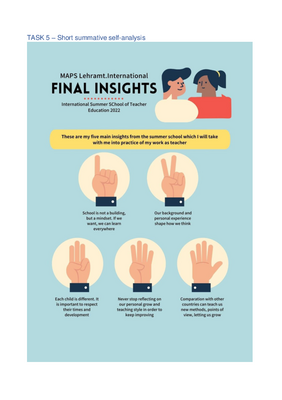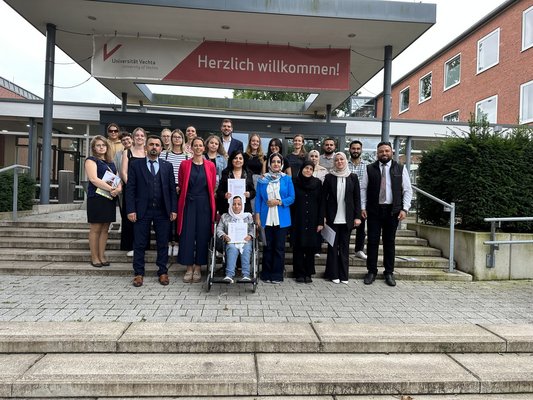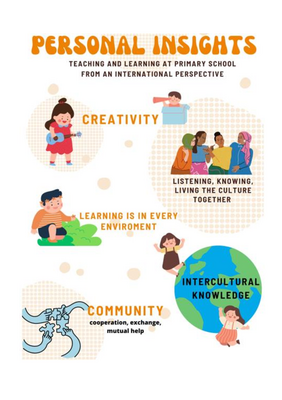Internationalisation of the teacher training programme
At the School of Education (ZfLB) at the University of Vechta, one of 19 nationwide model projects is being implemented for the internationalisation of teacher training at German universities.
The primary goal of MAPS is to establish structured mobility windows for prospective students for primary school teacher training and to fully recognise academic achievements completed abroad. This creates opportunities to acquire international and intercultural competences in a predominantly nationally oriented degree programme at the University of Vechta.
In the face of globalisation, migration and multicultural classrooms, dealing with cultural and linguistic heterogeneity in primary schools in a pedagogically effective and sensitive way is an increasing challenge for teachers. MAPS therefore seeks to design internationalisation programmes in such a way that prospective teachers are prepared as early as possible for a day-to-day school life increasingly characterised by diversity.
Internationalisation is an ambiguous concept that stands for a set of goals, functions and means in higher education (Acedo, 2012). Conceptually, it can be interpreted in different ways.
In teacher training, it is closely linked to the acquisition of intercultural, global or international competence – based on Jane Knight’s (2004) understanding of internationalisation.
In higher education practice, international or internationalised learning opportunities can take different forms, including international school placements, study or teaching stays abroad, intercultural training, cooperation practices with international partner universities, courses or content that are intended to address the issues of heterogeneity, diversity and inclusion.
“Diversity is about counting heads; inclusion is about making heads count.” (Mary-Frances Winters, 2014)
There is no uniform definition, but in an educational context, the terms heterogeneity – or the more commonly used international term diversity – are used to describe differences between learners relating to different socio-cultural aspects (e.g., socio-economic, ethnic/cultural, gender-specific, religion-related), individual learner potential (e.g., cognitive skills, motivation) or any other form of differences (e.g., Ainscow, 2020).
As research shows, heterogeneity and diversity are closely related to discrimination against individuals or groups, access to education and educational success. In the last two decades, initiatives and teacher institutes around the world have therefore campaigned for an active engagement with diversity on the basis of a legally strengthened position and established a changed practice in the education sector with the concept of inclusion.
At the school level, the concept particularly focuses on changes in social and pedagogical/special educational practice towards individual needs, without emphasising any particular group of marginalised pupils or any aspect of disadvantage.
The demand for “more” internationalisation in initial teacher training is justified and legitimised with regard to education policy with the increasing heterogeneity, plurality and diversity in schools.
Teachers are major actors in social change (Cochran-Smith, 2008) who play a crucial role in achieving the goal of a participatory, inclusive society (Bartels et al., 2020). Providing learning opportunities on the subjects of heterogeneity, diversity and inclusion is a cross-cutting task in initial teacher training.
Internationalisation is highlighted as a possible strategy to support the teachers’ ability to actively address diversity in the classroom prior to entering professional life through internationalised learning opportunities (Bartels & Schmees, 2021).
There is therefore potential for an internationalisation of teacher training in all subjects involved in initial teacher training that address the acquisition of a professional approach to learner diversity.


The MAPS project is funded with EUR 356,761 by the programme “Lehramt.International” of the German Academic Exchange Service (DAAD) and the Federal Ministry of Education and Research (BMBF). It has a duration of four years (2021-2024).



